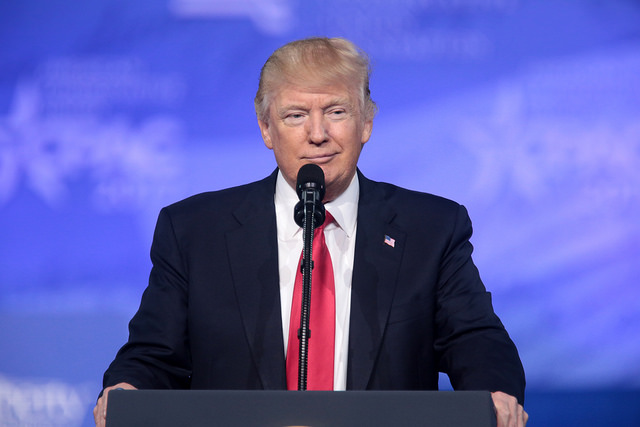
President Trump can build on the success of the administration’s tax cuts and regulatory reform by ending the job-killing inflation tax on capital gains.
This can be done immediatedly by having the Treasury department issue a rule adjusting the capital gains tax rate for inflation.
Ending the taxation of inflationary gains will have clear, immediate economic benefits and will increase the wealth of Americans across the country. This would free up “sticky capital”—buildings, land, stocks—that are held by individuals or businesses rather than sold and put to higher and better use because much of the “capital gain” is inflation and the high capital gains tax discourages mobility of capital. The value of all property in America would increase.
For decades, Americans have been stuck paying capital gains taxes on phantom, inflation-based gains which unfairly exposes taxpayers to additional taxation.
For example, an investor makes a capital investment of $1,000 in 2000 and sells that investment for $2,000 in 2017 will be taxed for a $1,000 gain at a top capital gains tax rate of 23.8 percent. After adjusting for inflation, the “true gain” is much lower – just $579. (1,000 in 2000 – $1,421 in 2017).
There is strong support for ending the inflation tax:
- Several months ago President Trump acknowledged that he was “very strongly” considering a decision to index capital gains to inflation.
- Larry Kudlow, the President’s Chief Economic Advisor has urged the President to end the inflation Tax in a CNBC column, describing the policy as a way to “spark a wave of prosperity.”
- Treasury Secretary Steven Mnuchin also said that the administration is considering the policy.
- Current and former members of Congress, including Vice President Mike Pence support indexing capital gains taxes to inflation. Pence introduced legislation in 2007 with 88 co-sponsors including now-Office of Management and Budget Director Mick Mulvaney, House Speaker Paul Ryan (R-Wis.), and House Ways and Means Chairman Kevin Brady (R-Texas).
- Senator Ted Cruz (R-Texas) and Congressman Devin Nunes (R-Calif.) have introduced legislation that is supported by Senator Pat Toomey (R-Pa.) and Freedom Caucus Chairman Mark Meadows (R-N.C.)
Treasury has the legal authority to index the calculation of capital gains taxes to inflation. Under the precedent set by the Supreme Court in Chevron U.S.A. v. National Resources Defense Council (1984), the ability of Treasury to add an inflation adjustment hinges on whether a new definition of “cost” is plausible. Currently, the capital gains tax is calculated as the difference between the cost of the asset and the sale price of the asset.
While in this context, “cost” is commonly understood to mean historical cost, this definition is not explicitly enshrined in law and Treasury has utilized regulatory discretion in the past. For instance, in 1918, Treasury decided that an asset’s cost was not strictly purchase price but was purchase price less depreciation and depletion taken by the taxpayer prior to sale.
Recent legal precedent proves that there is precedent for the term “cost” to include inflation. For instance, in Verizon v. FCC (2002) the Supreme Court affirmed that the term “cost” was ambiguous and the use of historical cost was not required by law. National Cable & Telecommunications Ass’n v. Brand X Internet Services (2005), affirmed the right of an agency to interpret an ambiguous provision of the law, while in Mayo Foundation for Medical Education & Research v. United States (2011), the Supreme Court affirmed that the Chevron doctrine applies to Treasury regulations.
See Also:
The tax law Chuck Schumer hates – but used to praise (The article by authors James Carter and Peter Roff that brought this vote to ATR’s attention.)
The Case for Ending the Inflation Tax on Capital Gains
Indexing Capital Gains Taxes to Inflation Resources

